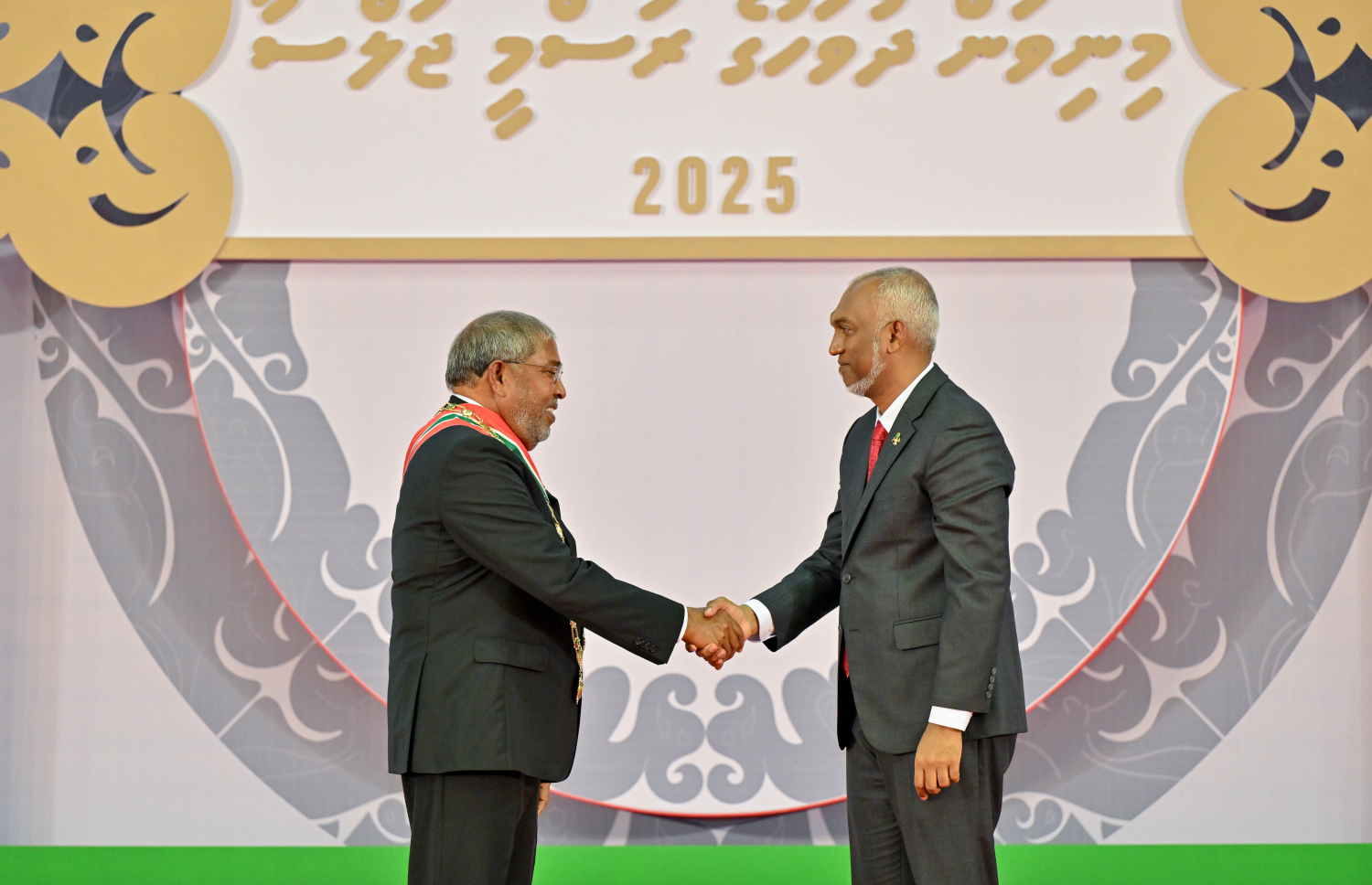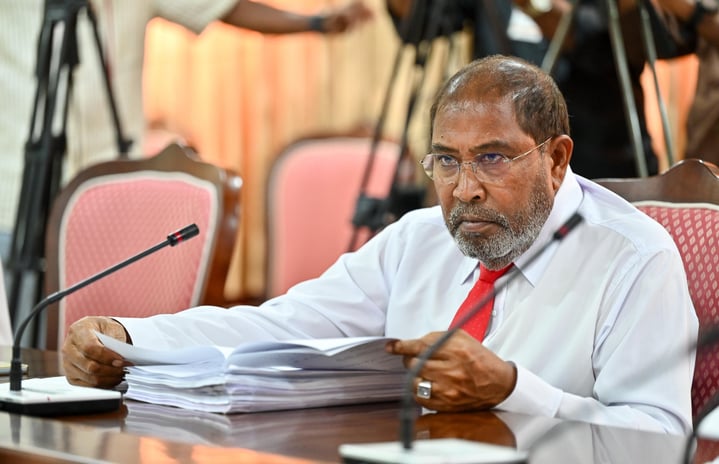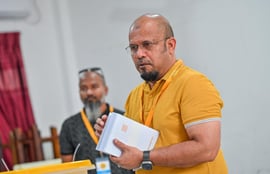Jumhoori Party Leader Qasim Ibrahim has stated today that the amendments to the Decentralization Act is something that Maldives needs when taking the state of the country into account. He also said that the amendments line up in the Constitution as amendments for a unitary state system.
The bill was passed on 6th August, with it being ratified by President Dr. Mohamed Muizzu last Wednesday.
While opinion on the bill is divided, Qasim released a statement where he said that the amendments are of great importance.
He has said that the Constitution state that Maldives should be run under a unitary state system and that Maldives is not a federal state. He went on to say that the Decentralization Act should be looked at within the limitations of a unitary state system as well.
Qasim stated that no law should be passed where the possibility of the authority and framework of the unitary state may have any contradictions.
He also stated that in the 14 years the Decentralization Act has been in effect, there have been instances where federal thinking exists in certain areas, with opposition parties promoting such topics as well.
"Just as President Dr. Mohamed Muizzu does, I firmly believe that the amendments will only make the system stronger and should be championed in order to do so," said Qasim.
As an example, Qasim said that the upcoming local council elections should not give a local council any opportunity to lease land for political purposes, and to stymie their opportunity to hire a large number of employees as well. He went on to say that it is an illegal advantage and the law should not give councilors the power to create more positions than the government's finances allow for the next term.

Qasim stated that the amendments won't benefit the government but rather the citizens, and that an island development plan is approved with the well-being of citizens in mind. He also said that development plans should not include projects that local councils want to suddenly start as the election rolls around as that is a political move and not one being made for the good of the citizens.
He said that it is quite damaging to the nation due to these reasons.
"For example, with the current council term ending in May 2026, they should adopt the mindset of a unitary state as per the Constitution. If done so and due to the amendments, the next 10 months will see a variety of benefits for the citizens and not the government," said Qasim.
Articles have been added after Article 70 (e) of the Act. Qasim references the amendment in Article 70 (f), which states that local authority companies cannot conduct business unless three conditions have been fulfilled, stating that the inclusion of the condition where it cannot be an economic activity or business carried on by a private entity in the island or islands, and said this will only benefit the citizens.
One of the amendments states that the investment or capital of a project or work should not exceed MVR 10 million. It also states that within 90 days of the amendment going into effect, businesses that contradict the amendment are to cease all operations.
As per the bill, the acquisition of rent from any plot or building that was given by the government to the public for basic services will also be prohibited. Among them, the bill describes the rent of leased land, harbors, reef areas and the rent of council buildings and property.
As per the bill, council bank accounts must now be run under the purview of the Finance Ministry, with all bank account statement requests being granted as well.
One of the amendments also states that if the period between the expiry of the term of the councils as stipulated in the Constitution is one year or less, the council shall not perform certain functions except in accordance with the rules prescribed by the Ministry of Finance and the LGA, with the functions being:
- The recruitment of permanent or contract employees to the council administration or the council office.
- The lease and grant of land, harbors and reef areas within the jurisdiction of the council.
President Dr. Mohamed Muizzu, defended the amendments that were brought to the Decentralization Act while speaking at B. Dharavandhoo last week, stating that these amendments need to be made in order to "strengthen and champion" the system.
Opposition party MDP has spoken out against the amendments to the Decentralization Act. A statement has also been compiled by around 100 councils, stating that the amendments serve to take away the financial authority that councils hold.




